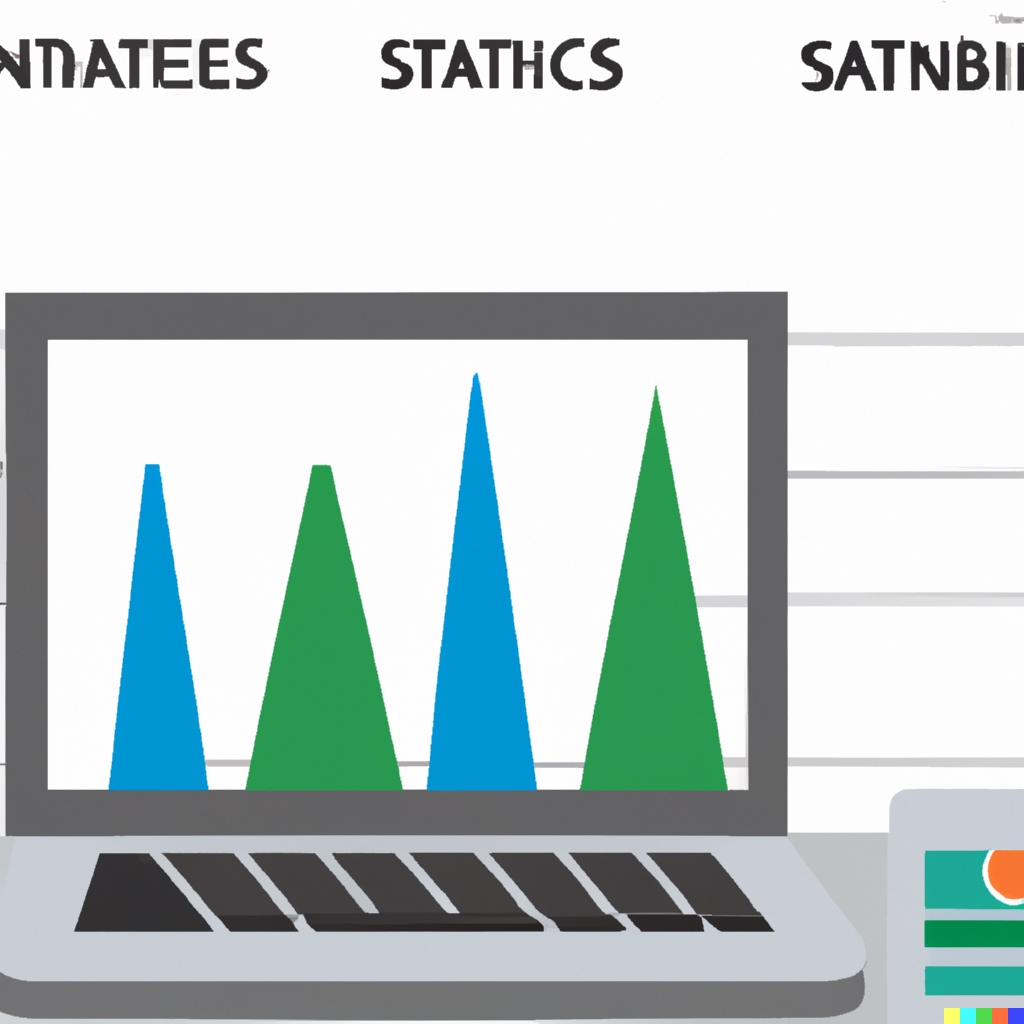Boosting your link building strategy with social media can significantly enhance your SEO efforts. By leveraging various platforms, you can increase your website’s visibility and authority through valuable backlinks. At Metrics Rule, we understand that effective link building is not just about quantity; it’s about using social channels to cultivate relationships and promote your content. In this article, we’ll explore practical strategies to help you integrate social media into your link building efforts, ensuring your SEO success.
Understanding the Link Building Process and Its Importance
Link building is essential in SEO as it involves acquiring hyperlinks from other websites to your own. These high-quality backlinks play a critical role in improving your website’s authority and search engine rankings. Understanding the fundamentals of link building helps in recognizing the importance of reliable and relevant links. Platforms like social media, blogs, and forums can serve as ideal sources for generating quality backlinks, while the focus should remain on ensuring links enhance your digital presence. In terms of numerical goals, many experts suggest aiming for at least 10 to 15 quality backlinks for optimal SEO performance, although the precise number can vary based on industry competition and niche.
Effective Strategies for Acquiring High-Quality Backlinks
To gain high-quality backlinks, consider using guest blogging, influencer outreach, and content marketing. Guest blogging on reputable sites provides excellent exposure and can help establish your reliability in the industry. Furthermore, reaching out to influencers in your niche can lead to endorsements that improve your site’s credibility. Quality content creation—including guides, infographics, and videos—attracts organic traffic and backlinks. Social media platforms can enhance your outreach by making it easy for users to share your content. Remember, a well-structured strategy focuses on earning backlinks from authoritative domains, ensuring that they bolster your site’s position in search results effectively.
Choosing the Right Social Media Platforms for Your Strategy
Identifying the right social media platforms for your link building strategy is essential for enhancing your SEO performance. Different platforms provide unique benefits. For instance, Facebook offers extensive audience targeting through ads, while Twitter thrives on quick, shareable content. Instagram is visually driven, ideal for brands that can produce engaging imagery. LinkedIn, on the other hand, is favored for B2B connections and professional content-sharing. Understanding these dynamics helps you choose platforms that align with your brand and can handle your audience’s interests.
Comparing Social Media Platforms for SEO Effectiveness
When comparing social media platforms for SEO effectiveness, consider their influence on link building strategies. Facebook’s robust ad targeting can drive traffic to your site, whereas Twitter’s fast-paced environment aids in quick content sharing, potentially leading to backlinks. Instagram enhances visual storytelling, which can engage users and encourage them to share links. For businesses focused on B2B marketing, LinkedIn offers a professional environment that fosters relationships, making it easier to earn quality backlinks. Research shows that companies utilizing these platforms report a higher success rate in their link building efforts, often exceeding a 30% gain in organic traffic.

Creating Engaging Content That Encourages Social Sharing
To enhance your link building strategy through social media, it’s crucial to create high-value content that resonates with your audience. Engaging visuals, such as infographics and videos, often generate the highest rates of social shares. Shareable articles that offer unique insights and practical tips tend to attract attention. Studies suggest that nearly 80% of social media users share content they find intriguing. To improve the shareability of your content, consider adding user-friendly features like social sharing buttons, ensuring that your audience can effortlessly share what they love.
How to Craft High-Value Content that Drives Engagement and Backlinks
Crafting high-value content involves understanding your audience’s needs and presenting information that they find useful. Start by conducting keyword research to identify trending topics that your audience is searching for, and use this data to develop content that directly addresses their interests. Engaging visuals, such as professional infographics or compelling videos, help capture attention and encourage shares. Design your articles or blog posts to include practical examples and actionable strategies, as these aspects have proven to enhance engagement and drive backlinks. The more relevant and dynamic your content is, the greater the likelihood of it being shared on social media, thus reinforcing your SEO efforts.
Key Statistics on Social Platforms and SEO
- Over 3.6 billion social media users worldwide in 2020.
- Social media accounts for about 31% of all referral traffic.
- Link sharing on social platforms increases visibility by 35%.
- 87% of marketers use social media to promote content, enhancing their SEO.
- Facebook leads social channels with over 2.8 billion active users.
- 67% of Twitter users say they are more likely to buy from brands they follow.
- Social signals contribute to 25% of SEO ranking factors today.

Leveraging Influencer Partnerships to Drive Link Building
Influencer marketing can significantly enhance your link building strategy. By collaborating with trusted influencers, you can improve your content reach and visibility. These partnerships help generate high-quality backlinks, which are essential for search engine optimization (SEO). Influencers can help provide reliable reviews and insights that attract more traffic to your site. To ensure success, identify influencers whose audiences align with your brand and who have a proven record of engagement. Through effective collaboration, your link building efforts can yield excellent results.
Choosing the Right Influencer for Your Brand
When selecting influencers for your brand partnerships, consider their niche, audience engagement, and previous collaborations. For example, a tech influencer can help promote your e-commerce platform if you sell digital products. Analyze their previous influencer marketing campaigns to test their effectiveness and reliability in driving traffic. Influencers who prioritize quality over quantity will offer you the best chance of generating valuable backlinks. Through this process, you ensure a partnership that enhances your link building strategy while providing quality content to their followers.

Measuring the Effectiveness of Social Media Link Building
To determine the success of your social media link building efforts, you should monitor several key metrics. Important indicators include referral traffic, which shows how many visitors come from social media links to your website. You should also check click-through rates (CTR) on shared links to understand engagement levels. Monitoring backlink quality is essential because high-authority links yield more significant SEO benefits. Tools like Google Analytics and Ahrefs can provide insights on these metrics, helping you refine your strategies over time.
Best Tools for Social Media Link Analysis
To effectively assess your social media-driven links, consider using platforms like Buffer and Hootsuite for scheduling, analytics, and engagement metrics. Google Analytics offers a comprehensive overview of how social media impacts your site’s traffic and conversions. You can also use tools like BuzzSumo to analyze which content performs best across various social media channels. This enables you to identify successful strategies and replicate them for improved link building efficiency. Leveraging these tools helps ensure you receive reliable and actionable insights into your social media efforts.
Advantages of Using Social Networks for SEO Growth
- Boosts brand awareness by reaching a wider audience through shares.
- Engagement on platforms enhances visibility and drives traffic back to your site.
- Helps build relationships with influencers to amplify your reach.
- Improves content discovery as search engines consider social activity.
- Offers direct feedback from users on your products and services.
- Facilitates more backlinks as users share your compelling content.
- Encourages community building, increasing customer loyalty and trust.

Fostering Community Engagement for Link Acquisition
Fostering community interactions is essential for enhancing link building opportunities. Effective strategies include encouraging discussions on social media platforms like Facebook, Twitter, and LinkedIn, where users can share their experiences and insights. User-generated content, such as testimonials, reviews, and forum posts, can also naturally attract backlinks as they enhance the credibility of your brand. By creating a supportive environment where members feel valued, your community is more likely to engage and share your content, which in turn improves your SEO performance. According to recent studies, about 30% of website traffic can be attributed to community engagement initiatives aimed at acquiring links.
Creating Valuable Content for Community Interaction
To create a strong sense of community, it’s crucial to produce content designed for interaction. Offer valuable resources such as how-to guides, infographics, and videos that encourage discussion and sharing. Posting regularly on relevant topics can spark conversations, prompting users to link back to your website as a trusted source. Engaging posts that invite feedback and questions promote a vibrant community atmosphere. By focusing on high-quality, informative content, you’ll improve your site’s reliability and performance in search engine rankings, ensuring better visibility and more organic traffic.
Integrating Paid Social Media Strategies with Organic Link Building
Using paid social media advertising can significantly enhance your organic link building efforts. By investing in targeted ad campaigns, you can boost the visibility of link-worthy content. This visibility enables more users to engage with your content, increasing the chances of acquiring valuable backlinks. Different social media platforms each offer unique benefits for link building. For instance, platforms like Facebook and Instagram excel in visual content, while LinkedIn is better for B2B connections. As you navigate these platforms, consider testing different ad formats to see which generates the most organic shares and links.
Choosing the Right Paid Social Media Platform
When choosing a social media platform for your paid advertising, consider your target audience and content type. Facebook, for instance, can drive a lot of traffic through engaging ads and is renowned for its vast reach. LinkedIn is excellent for B2B content, providing a focused audience likely to share your link-worthy articles. Running specific campaigns tailored for each platform can drastically enhance your link building performance. Focus on developing ads that showcase your content’s value, as these ads can help improve your overall SEO strategy by fostering engagement and increasing organic shareability.
Influential Companies and Their Approach to Link Strategies
- BuzzFeed: Focuses on shareable content; draws massive traffic but can be hit or miss.
- Buffer: Aligns social media posts with blog content; consistently builds authority.
- Canva: Uses user-generated content to create community; offers extensive resources.
- HubSpot: Blends social media and SEO; provides valuable tools but requires investment.
- Neil Patel: Engages directly with audiences; fosters a loyal following with insights.
- CoSchedule: Uses data-driven strategies for content sharing; effective but complex.
- Salesforce: Leverages events and webinars; highly interactive but resource-intensive.
Connecting Social Media Efforts with SEO Best Practices
Social media signals play a crucial role in influencing SEO rankings. These signals can enhance your site’s visibility and credibility. Engaging with your audience on platforms like Facebook, Twitter, and Instagram provides shareable content, which boosts backlinks and increases traffic. To effectively integrate social media strategies with SEO practices, ensure your posts are optimized with relevant keywords, providing a seamless user experience. Focus on creating content that’s shareable and encourages interaction. While there’s no set number of platforms, targeting 3 to 5 key social media channels is often most effective in maximizing results.
Optimizing Social Media Content for SEO
To enhance your social media content for SEO, start by researching trending keywords related to your niche. Incorporate these keywords naturally into your posts, titles, and descriptions. This not only helps in search engine optimization, but also makes your content more appealing. Using high-quality visuals, links to your blog, and engaging calls to action can significantly improve user interaction. Also, ensure that your social media profiles are complete and up-to-date. This alignment between social media and SEO creates a reliable digital marketing strategy that enhances visibility and performance.
